
Integrated Pest Management (IPM) is a sustainable approach to managing pests that combines multiple methods to minimise economic, health, and environmental risks. Unlike traditional pest control methods that rely heavily on chemical pesticides, IPM prioritises ecological balance and long-term prevention. This method is widely applied in agriculture, urban settings, and public health initiatives.
Dealing with pests requires a lot of effort, and pesticides alone are not enough. Even if they are powerful, they are not recommended as a pest control method as they pose harm to crops, the environment and health. Also, many pests can become resistant to certain pesticides, which will only lead to further problems but will not solve the one with the enemies.
Table of Contents
What is the meaning of integrated pest management?
The core idea behind IPM is to focus on prevention, monitoring, and targeted control, ensuring that interventions are only applied when necessary and in a manner that promotes long-term ecological balance.
According to the European commission, integrated pest control:
“means careful consideration of all available plant protection methods and subsequent integration of appropriate measures that discourage the development of populations of harmful organisms and keep the use of plant protection products and other forms of intervention to levels that are economically and ecologically justified and reduce or minimise risks to human health and the environment. ‘Integrated pest management’ emphasises the growth of a healthy crop with the least possible disruption to agro-ecosystems and encourages natural pest control mechanisms.”
In other words, Integrated Pest Management (IPM) is an effective approach to minimise pest infestation by combining different methods and practices. The program aims to protect agricultural settings, your home, garden or other property from pests with minimum use of pesticides.
The IPM strategy has a long-term focus on preventing pests or their damage and has a safe and harmless impact on humans and the environment.
What are the 4 methods of integrated pest management?
In Integrated Pest Management (IPM), there are four primary methods:
- Biological pest control – In this method, natural predators, parasites, or pathogens are used to control populations of pests. The release of ladybirds can help control aphids, or the introduction of nematodes can help control soil pests.
- Cultural pest control – By modifying the environment, such as crop rotation, maintaining proper sanitation, and planting pest-resistant crops, pest infestations can be prevented.
- Physical and mechanical pest control – Physically removing or blocking pests with traps, barriers, hand-picking, cold, or heat treatments. Pests can be removed manually by handpicking. This is one of the quickest ways to get rid of bugs. Especially useful when certain plants or crops are invaded by bugs and can be easily removed.
- Chemical pest control control – A selective use of pesticides when necessary, applied in a targeted manner to minimise harm to beneficial organisms. IPM considers this a last resort. Integrated Pest Management (IPM) is not entirely chemical-free, but it significantly reduces reliance on chemical pesticides by integrating a variety of environmentally friendly and sustainable pest control methods.
How does integrated pest management work?
Integrated pest management can be separated into several important steps:
- Pest identification: The first and foremost step is to define the pest. Each of them has different behaviours and there are beneficial pests, as well. So, you have to correctly identify what type of pest is lurking around, is it bad or good for your crops. This step is a must as it will impact how effective and least hazardous methods you will use to eliminate them.
- Monitoring: Next move is to observe the situation. The observation is mandatory as pest management is an ongoing process, and you should track changes and pest activity. Monitoring can be accomplished with the help of special diagnosis systems, forecasting programs or sound warning alarms. Also, employees (if you have any) should work in synergy with those systems and must possess high sanitation habits and report if they notice any pest activity. You can hire a professional who can do surveys weekly or bi-weekly.
- Documentation: Record-keeping is a very important part of the IPM program. By this, you will keep track of distinctive features of the pest’s lifecycle, such as type, population size, reproduction and other information which can be used for future preventive measurements and treatment methods.
- Make a decision: When monitoring is done, it’s time for decision-making. In this step, you should set a threshold. It is the identified population level that, when goes beyond normal, a treatment occurs. As it’s usually very difficult to define, general observations can help with the decision. Furthermore, you should know the specification of the crops, the lifespan of the pest and other conditions while making any decisions. This step describes what combinations of biological, cultural, mechanical and chemical methods will be used.
- Regular inspections: Each effective integration pest management program includes at least weekly inspections. After the treatment, you should keep an eye on the areas where pests are most likely to hide, such as kitchens, agriculture and other places where food sources and shelter are available. One treatment usually isn’t enough and they can come back again. So be cautious.
- Prevention: Pest inspection is not enough if you haven’t taken any further actions to pest-proof the area. One of the best ways to keep pests out is to establish good cleaning habits and regularly clean infested areas. Keep food and water sources away. Seal any entry point to your property. These few things will minimize the chance of pest infestation with less use of chemicals. Another great way to deal with pests is crop rotation which is a great alternative to synthetic pesticides.
Check also:
How to implement IPM
Implementing IPM involves several steps:
- Assess pest problems: Identify pest species, their population levels, and environmental factors contributing to infestations.
- Develop a pest control plan: Establish action thresholds and design a management strategy incorporating multiple control methods.
- Monitor and adjust: Continuously monitor pest populations and the effectiveness of control measures, adapting strategies as needed.
So, the integrated pest management program aims to minimise the use of pesticides as they can be unsafe for humans and pets. This is why it’s not recommended that you do it by yourself. Instead, an expert and certified pest controller should execute the treatment with chemicals.
Benefits of integrated pest management
IPM offers numerous advantages, including:
- Environmental sustainability: Reduces reliance on chemical pesticides, preserving soil and water quality.
- Cost-effectiveness: Minimises unnecessary pest control expenses by targeting interventions.
- Health protection: Limits exposure to harmful chemicals for humans, pets, and wildlife.
- Resilient ecosystems: Promotes biodiversity by protecting beneficial organisms.
Pros and cons of integrated pest management
As with any aspect of life, the integrated pest management program has its positive and negative sides.
So, the integrated pest management advantages can be:
- Eco-friendly approach: the combination of different integrated pest management approaches and minimizing the use of pesticides is the best solution for the environment and the well-being of pets and humans.
- Lower cost: using only one method (especially chemical control) will cost much more than integrating different methods.
- Anti-resistance effect: changing the methods and ways to eliminate pests will make sure they won’t get resistant to certain situations, environment and, most commonly, to pesticides.
On the other hand, disadvantages of integrated pest management are:
- Requires time, patience and energy: the whole program is consuming and laborious. The application gives results after a certain amount of time, for which you should be very patient and consistent.
- Requires technicalities involvement: the integrated pest management program has to be carefully planned. Also, specifically educated and trained people are needed who will dedicate their efforts to eliminate the pests.
The benefits of IPM for the environment, health, and economy are substantial, but its implementation requires patience, knowledge, and careful planning. The long-term advantages of IPM make it a powerful and sustainable approach to pest control for those who can commit to these efforts.
Conclusion
IPM reduces the reliance on chemical pesticides, which helps protect ecosystems, soil health, and water quality. It promotes biodiversity by safeguarding beneficial organisms such as pollinators and natural predators.
By minimising chemical pesticide use, IPM reduces the risk of exposure to harmful chemicals for humans, pets, and wildlife. This is particularly important in homes, schools, and agricultural environments.
IPM encourages sustainable pest control practices, leading to lasting results. It aims to manage pest populations over time, preventing future infestations and reducing the risk of pesticide resistance.
Image: wavebreakmedia / shutterstock.com
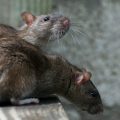
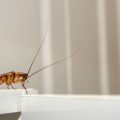


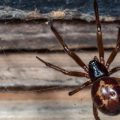
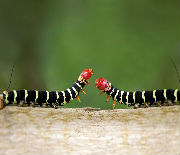
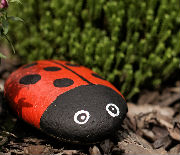
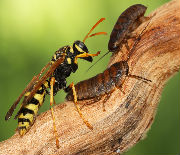
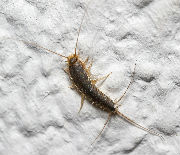
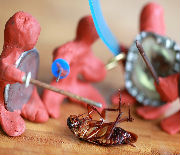
Leave a Reply